
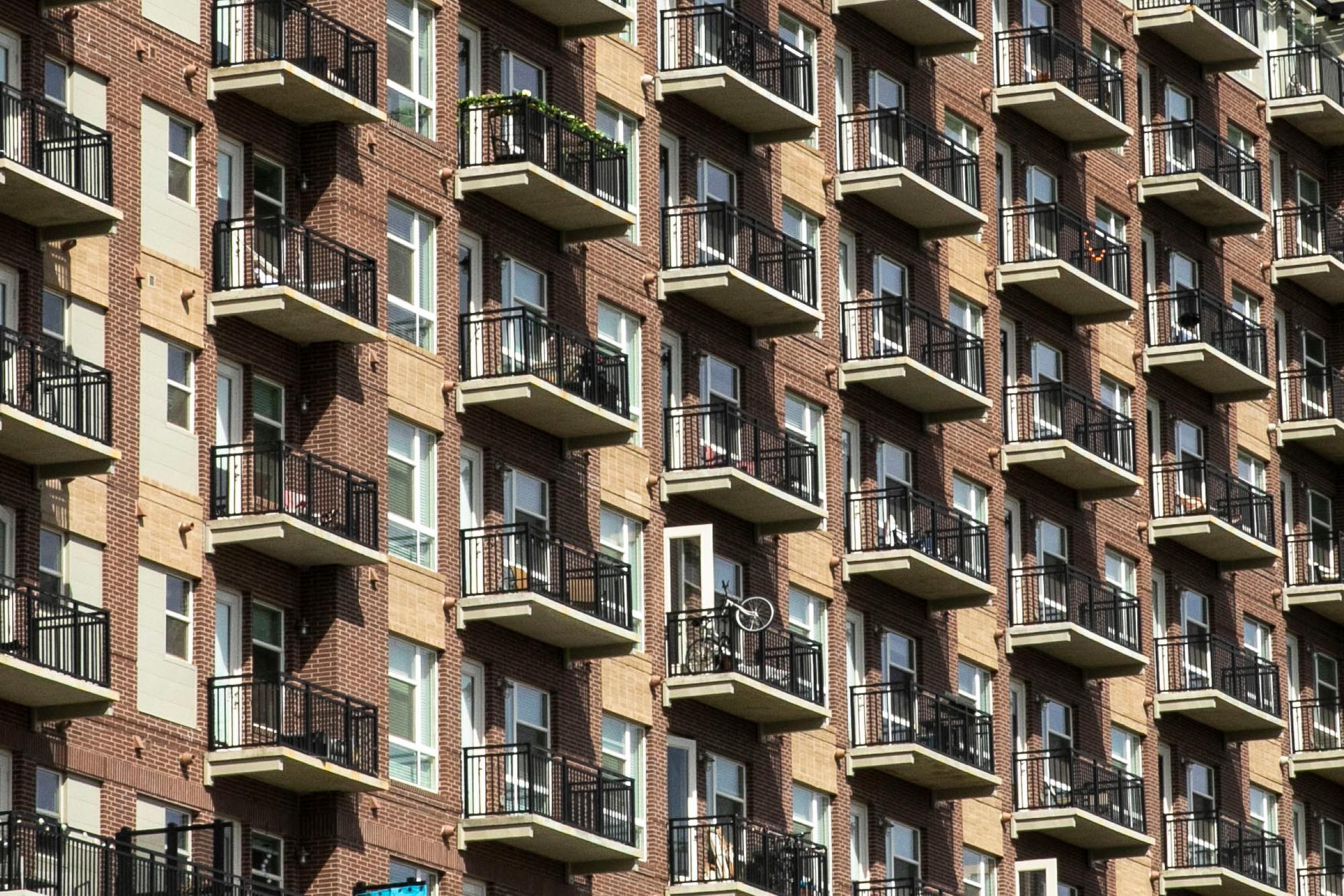
Colorado's affordable housing crisis — and the people living through it
There is an equation in Colorado that, for years, has failed to add up. It’s the math of a population boom and a desperate lack of affordable housing. Multiply it by a deadly pandemic and the numbers tell a grim picture of what it costs to live here. Demand has outpaced the supply of housing in general, and the supply of homes for people who make less than $45,000 a year is practically nonexistent.
Colorado Public Radio set out to explore the issue in this seven-part series about the people who are directly feeling the impact of the affordable housing crisis. The people walking the line between those who can afford to live in Colorado and those who can't.
Balconies at an apartment building in Denver, October 8, 2021. (Hart Van Denburg/CPR News)

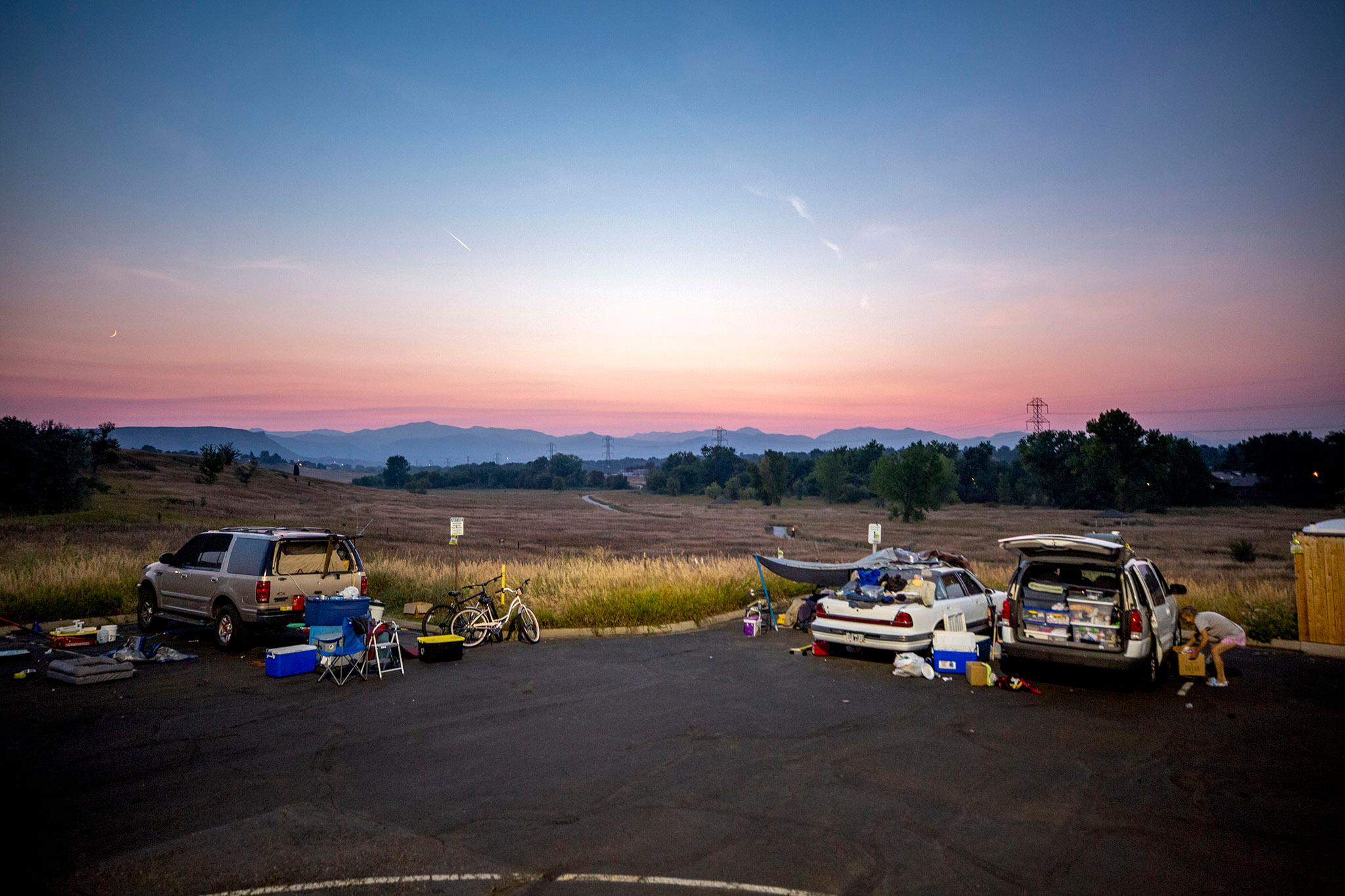
More people are resorting to extreme measures to make ends meet while housing costs in Colorado continue to climb. Rent, deposits and utility bills can get in the way of someone getting into a home to begin with.
In the Denver metro area, the Colorado Safe Parking Coalition is providing safe parking spaces where people who are living out of their cars can sleep safely overnight.
CPR reporter Sarah Mulholland met some people who use their cars as shelter either to save money for a place to live — or because they simply have no place else to go. Most hope they don't get stuck there permanently.
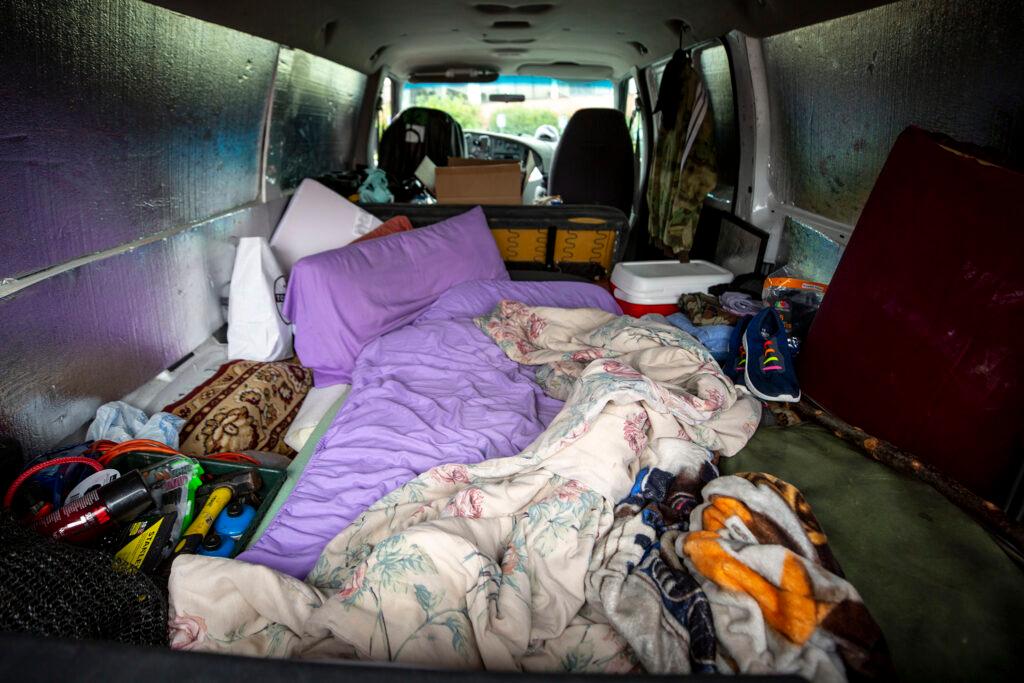
Dusk falls over the Colorado Safe Parking Initiative's site in Arvada. Sept. 8, 2021. (Kevin J. Beaty/Denverite)

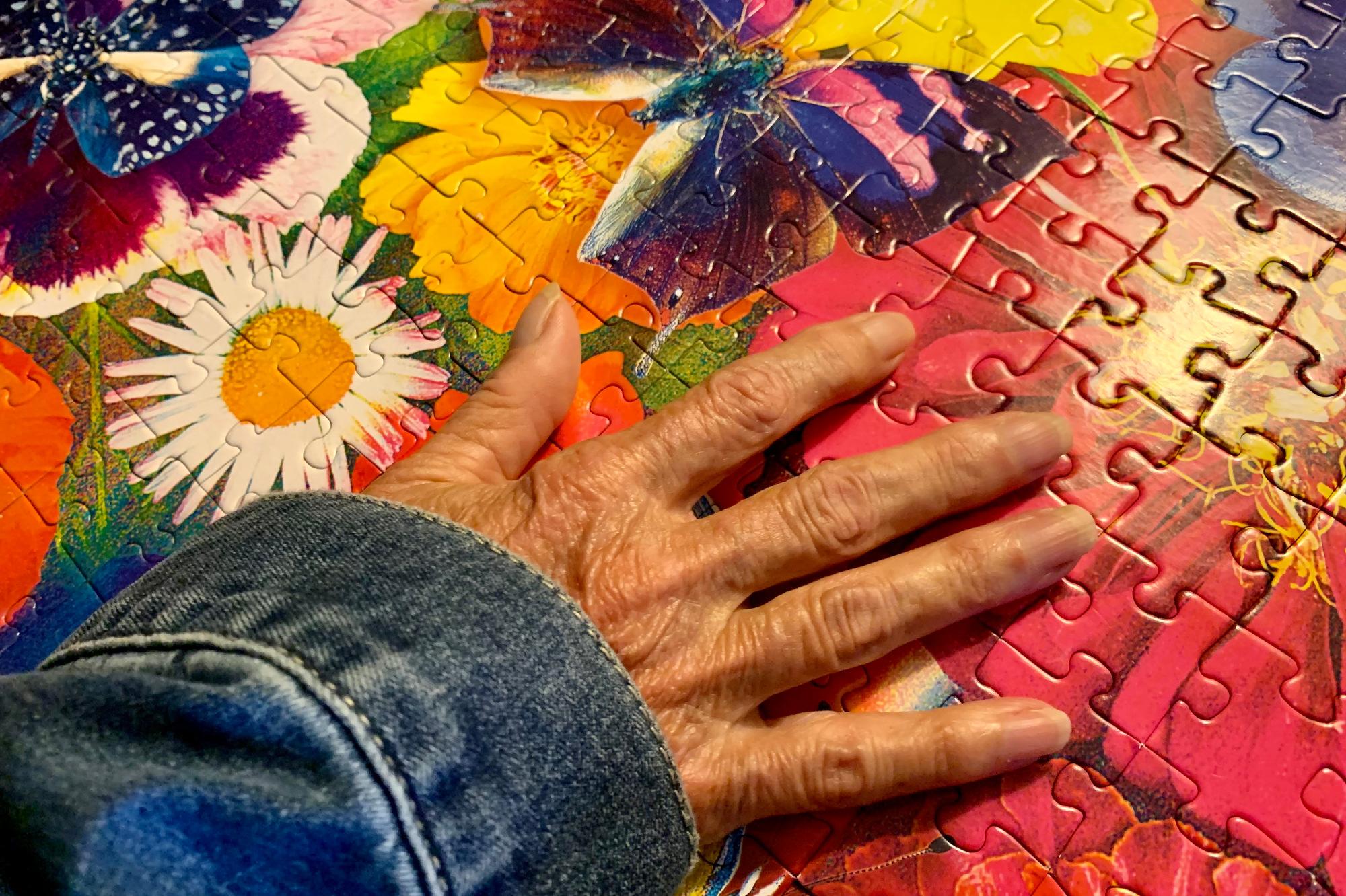
All across Colorado, high housing prices are pushing people out of their homes — including many older women who are struggling financially. Now a program on the Western Slope gives older women a temporary home as they rebuild their lives.
A nonprofit initiative called Golden Girls program, run by nonprofit The Joseph Center, can house up to five older women at a time. The residents, known as “guests,” get six months here as they try to find their way, with the program’s help, into permanent housing.
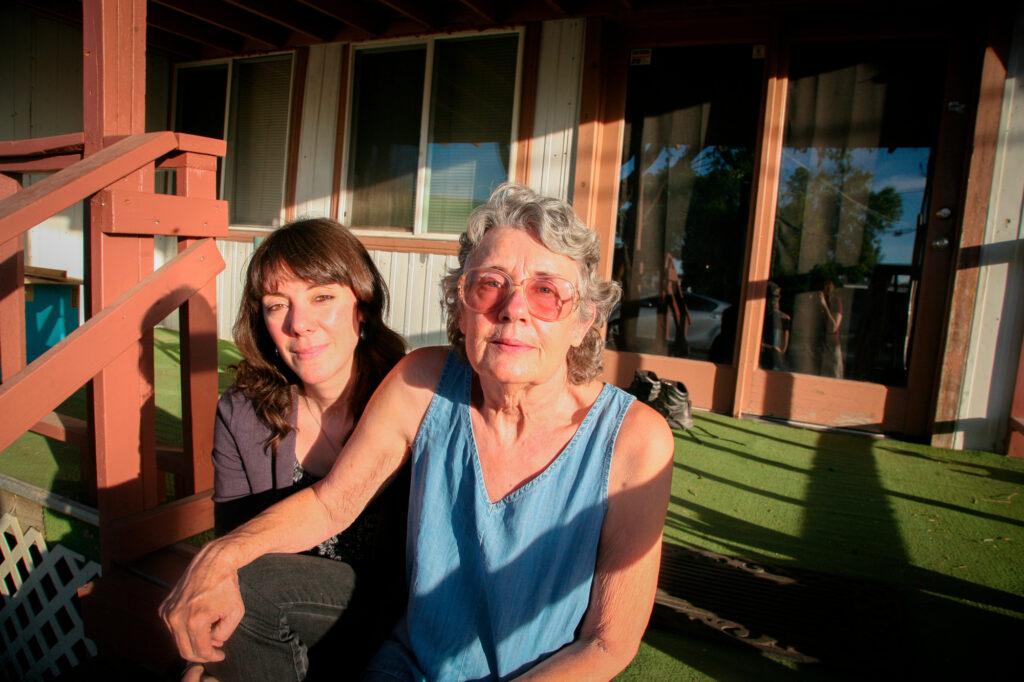
Cindy Maney, a current Golden Girl, often works on puzzles at the apartment she shares with two other women. (Stina Sieg/CPR News)


Our reporting on series like this one is not possible without support from readers like you. Consider supporting Colorado Public Radio's mission to tell the stories of everyday people by donating today.
The series continues below.

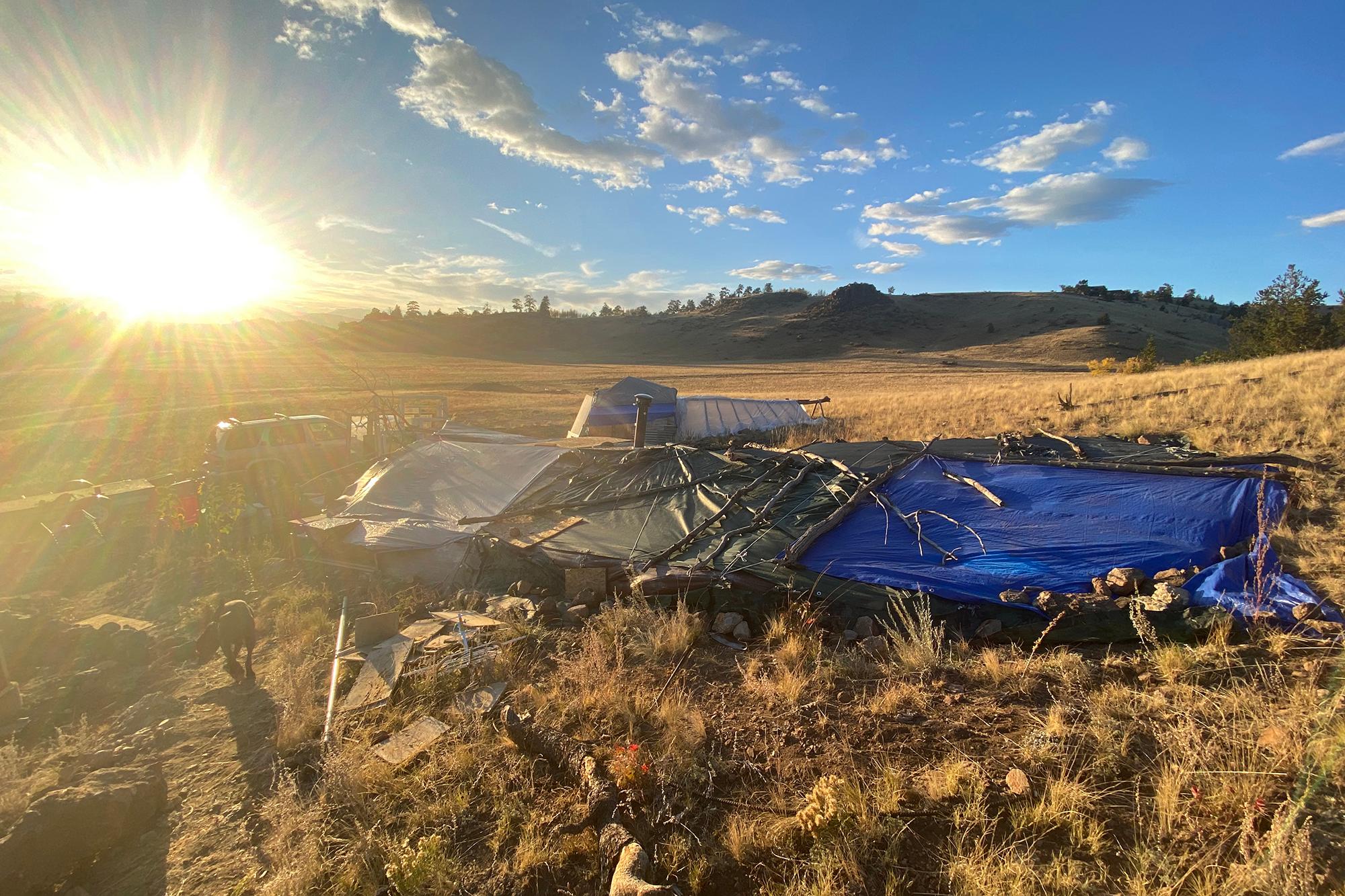
When it comes to housing, Park County is a place of extremes. The price of homes in Fairplay can push toward $500,000, and yet the flat land in the South Park Valley is dirt cheap. But there's a catch — there are no services like water and power and building a home is slow and expensive.
That can leave landowners effectively homeless. CPR's Dan Boyce met one man there who bought land but now lives in a hole because finishing construction on his future home is too expensive.
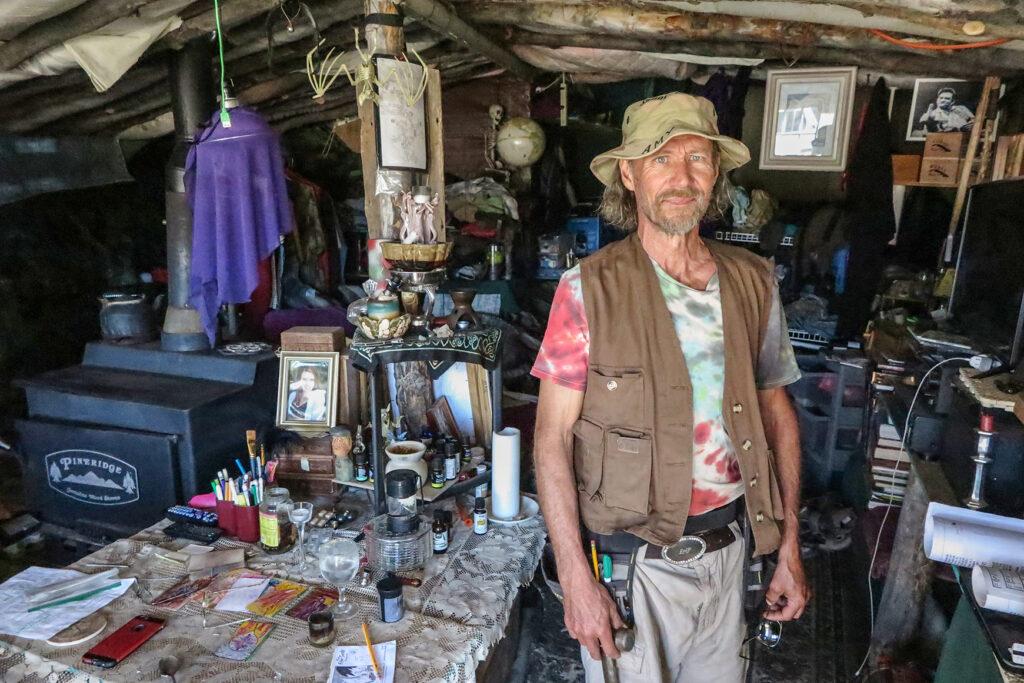
Jim McKinney built a roof for his temporary “Hobbit House” largely from canvas tarps and blankets, in Park County. (Dan Boyce/CPR News)
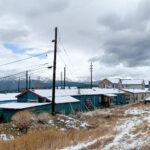
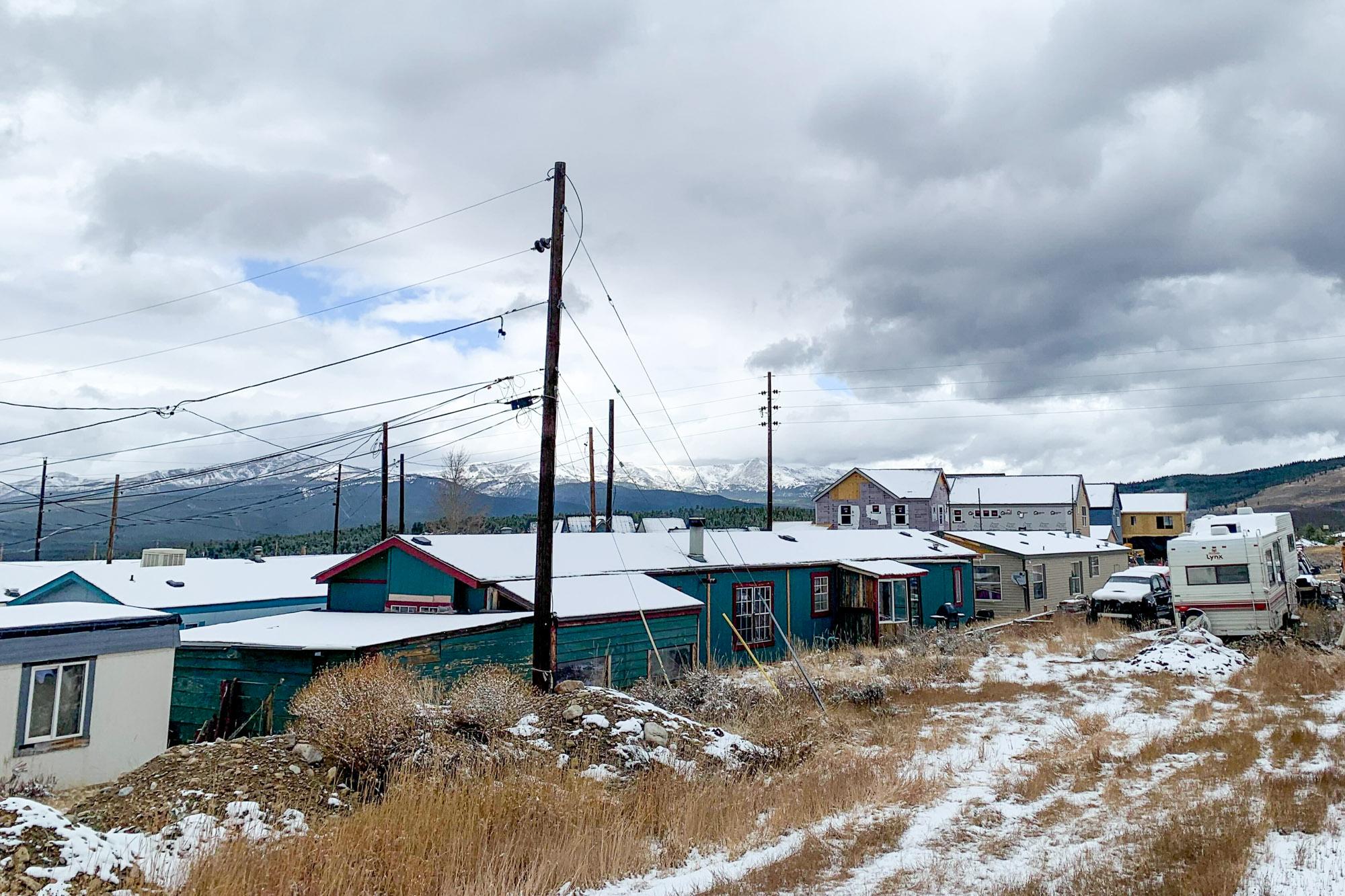
Corporate investors are buying mobile home parks across Colorado, so residents are using a new state law to their advantage to fight back and try to purchase the communities they call home for themselves.
But when landlords don't cooperate, things get complicated. CPR's Andrew Kenney reported on efforts at two mobile home communities in Fort Collins and Leadville with different outcomes.
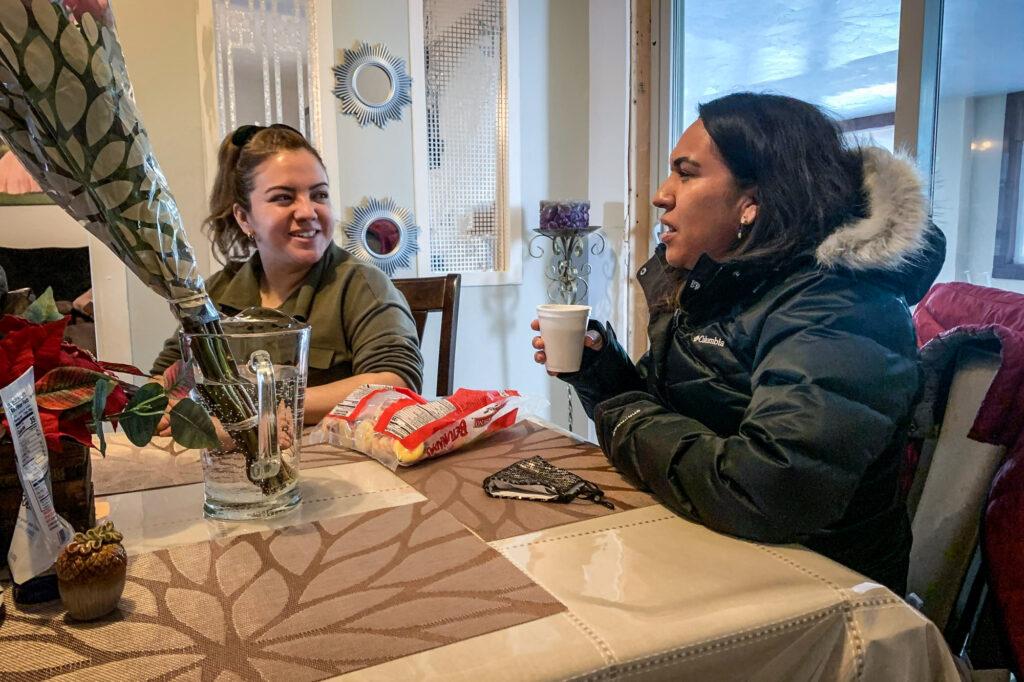
Mobile homes in Leadville, where a new housing development is going up nearby. The park doesn't really have a name. It's been known as Arrow at times. If the residents manage to purchase, it will be renamed Cooperativa Nueva Unión. Nov. 1, 2021. (Andrew Kenney/CPR News)
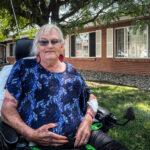
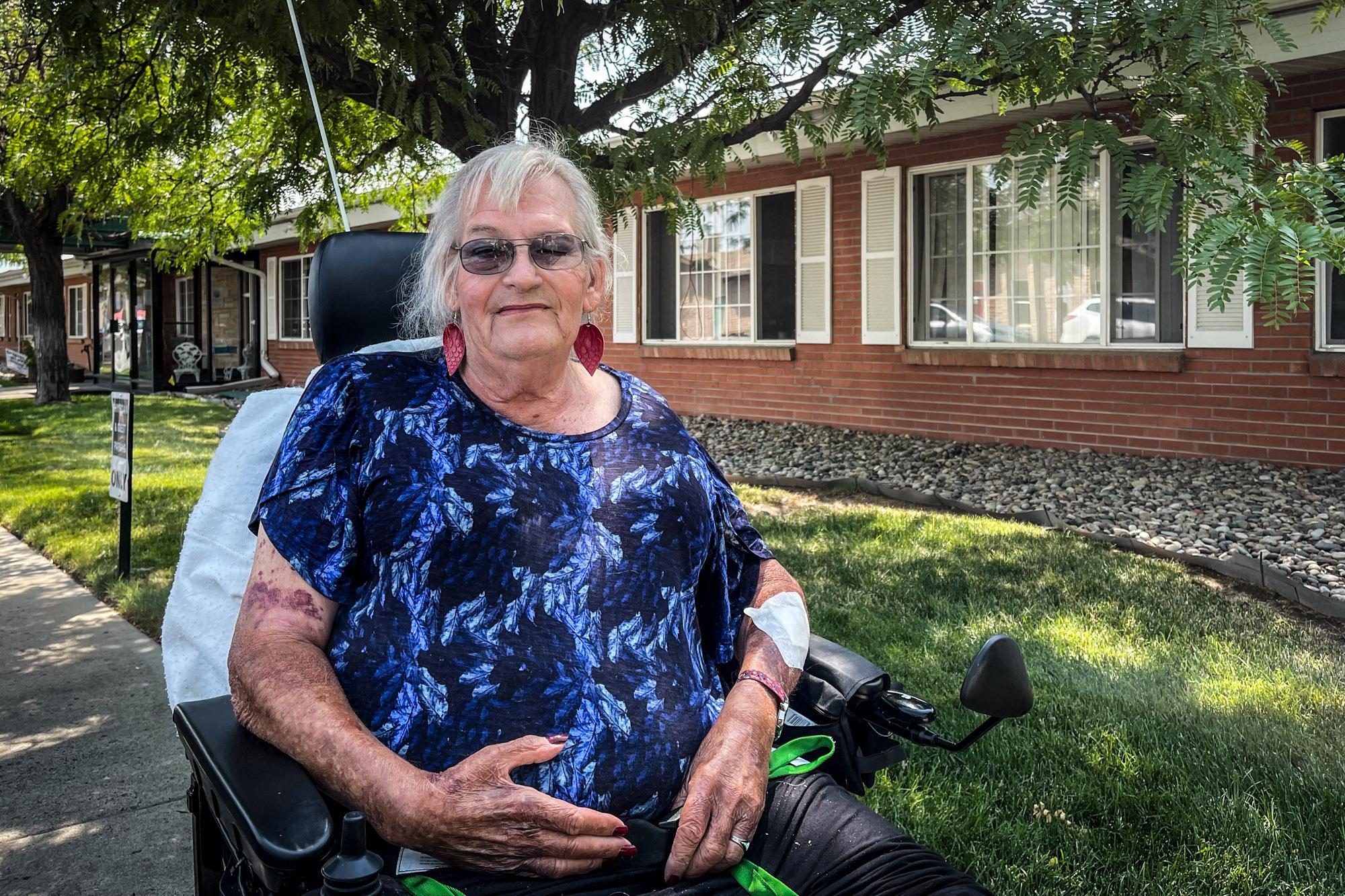
Older LGBTQ adults may find themselves on the brink of homelessness at a time when they need the most care. One transgender woman on the Western Slope shared the story of her struggles with Colorado's housing prices and expensive long-term care.
On top of that, she told CPR's Claire Cleveland that finding a place to live where staff have sufficient training to understand and accommodate trans people was its own challenge.
Lisa Oakley sits outside Eagle Ridge of Grand Valley nursing home in Grand Junction. Oakley is trans and says she was denied admittance to dozens of facilities during the pandemic because of her identity. (Claire Cleveland/CPR News)
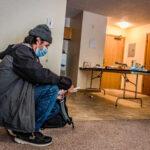
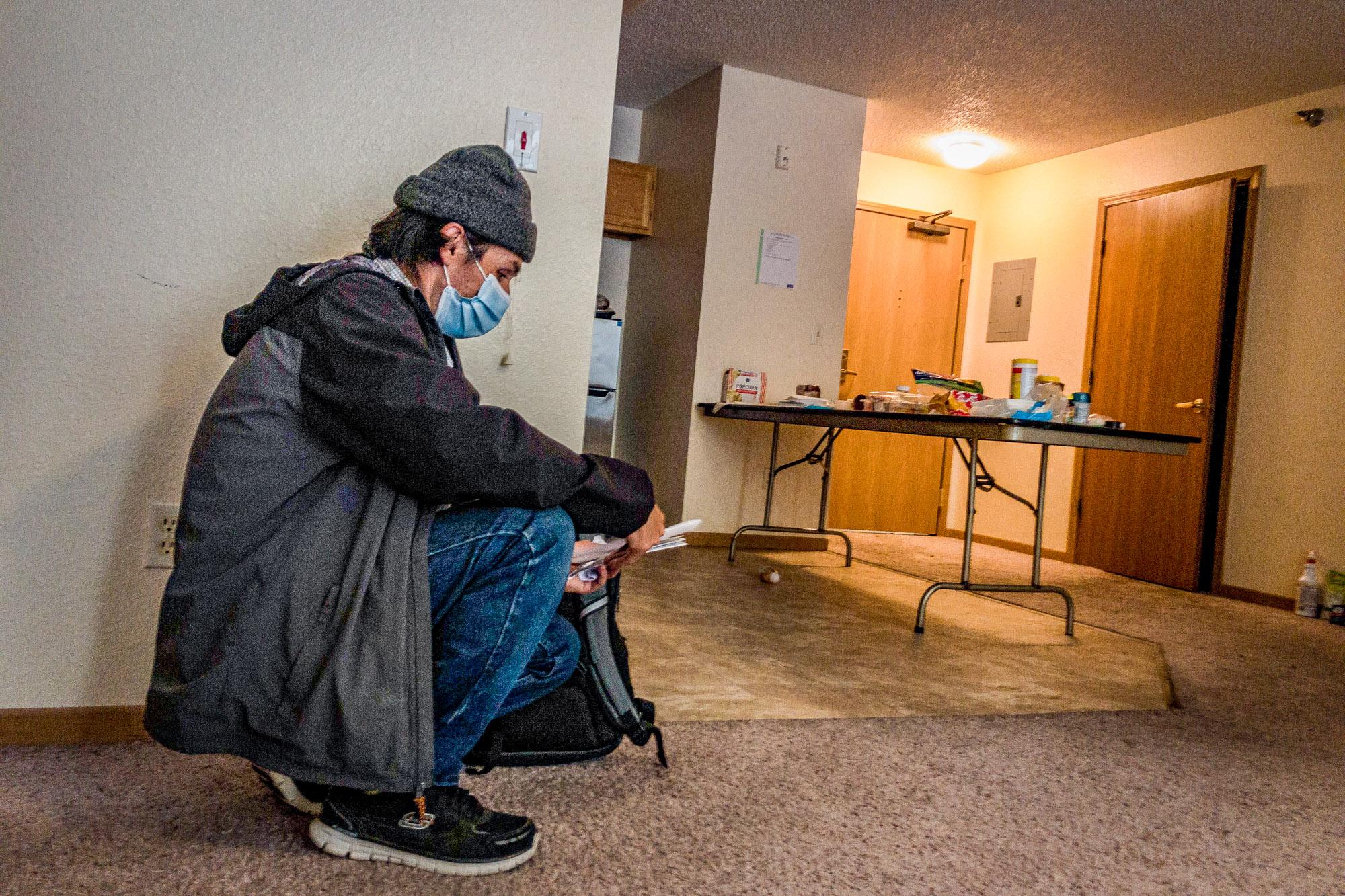
For over a year, dozens of homeless Coloradans lived comfortably and safely inside a former nursing home in Greeley, thanks to pandemic relief funds. But that money has run out. Residents now face a return to homelessness.
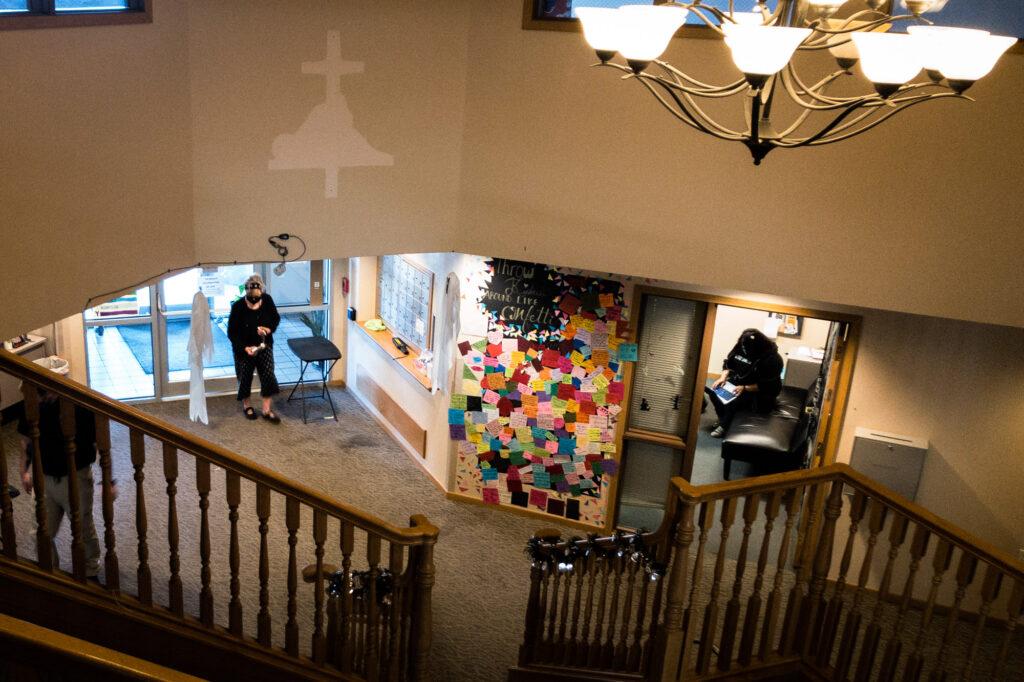
Izzy Maravilla looks through his next housing options, at the Bonnel Non-Congregant Shelter in Greeley on Oct. 29, 2021. (Hart Van Denburg/CPR News)
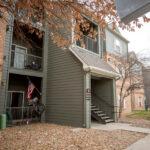
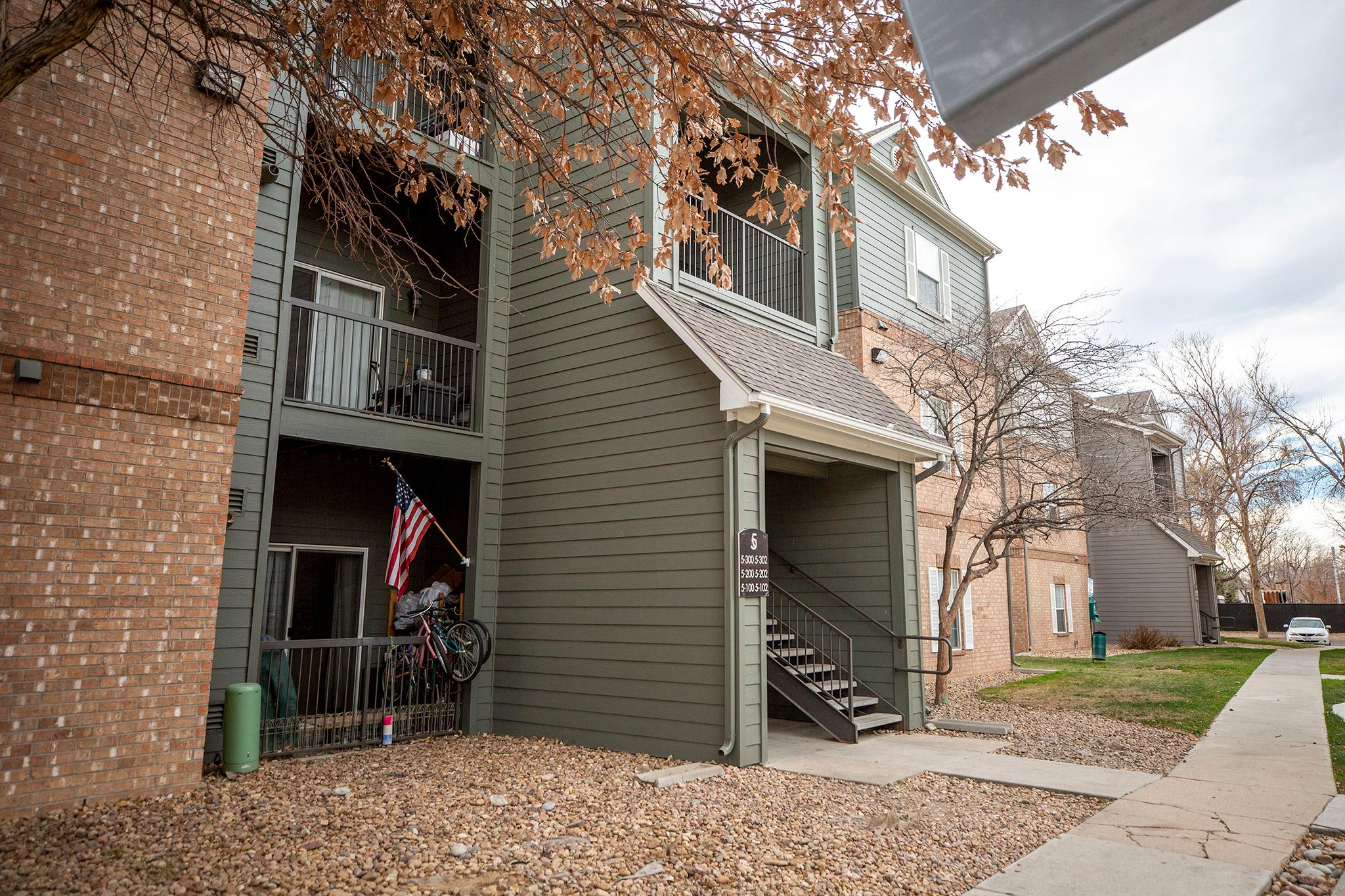
Jessica was pregnant when the manager at her apartment complex called in April 2020. She was being told to vacate the apartment because she was unable to pay rent consistently. As the pandemic unfolded around her, Jessica struggled to find work and — to make matters worse — she was locked out of collecting any federal aid because she is undocumented.
Denverite's Esteban Hernandez met with Jessica and other residents at an apartment complex in the northeast Denver metro, where many other families without legal status have struggled to make ends meet during the past two years.
The Commerce City apartment complex where Jessica and Iris live. Nov. 23, 2021. (Kevin J. Beaty/Denverite)


If stories like this are important to you, get more of them in our daily newsletter.
Throughout the reporting of this series, CPR and Denverite reporters spoke with organizations that provide help to individuals in need. This is a list of those organizations and other statewide resources for those seeking housing assistance.
This series was edited by CPR News team editor Alison Borden and audience editor Obed Manuel.
Audio production assistance by CPR's Pedro Lumbrano.
A special thanks to the organizations and individuals who agreed to share their stories. Thank you.